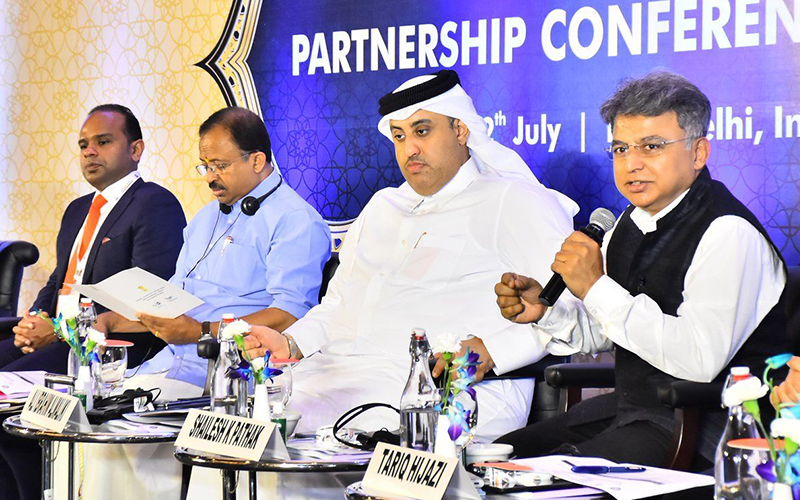The 4th India-Arab Partnership Conference: New Horizons in Investment, Trade and Services will be
held in New Delhi on 26-27 November 2014. This is a flagship event organized under the
Memorandum of Cooperation signed between India and the Arab League in December 2013, which
mandates invigorated cooperation between the two sides. The Conference is being organized by the
Ministry of External Affairs in association with the Federation of Indian Chambers of Commerce
and Industry (FICCI), the Secretariat of the League of Arab States and the Arab industry.
The India-Arab Partnership Conference has emerged as an important biennial forum for promoting
the two-way flow of business and investment, and is strongly placed to leverage the emerging
opportunities for a ‘win-win’ partnership.
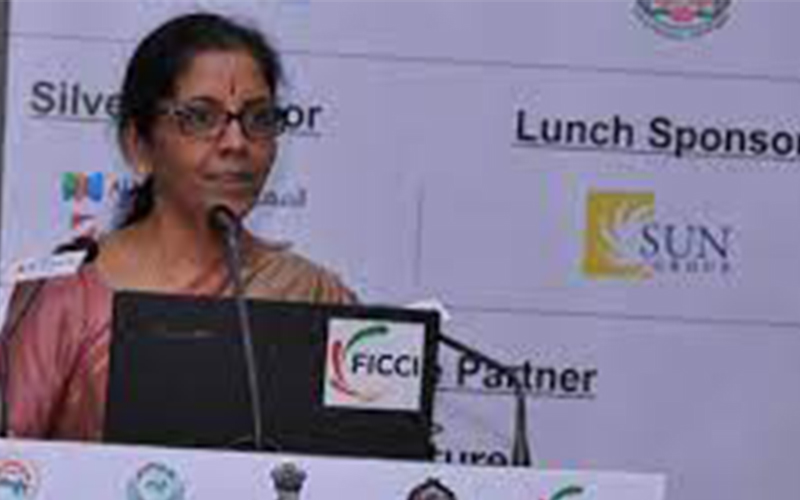
The Partnership Conference will be inaugurated by Smt. Nirmala Sitharaman, Hon’ble Minister of State (Independent Charge) of Commerce & Industry on 26 November 2014. The delegates will also be addressed by Gen (Dr) V.K. Singh (Retd), Hon’ble Minister of State for External Affairs. The Conference is expected to be attended by the Arab Trade Ministers as well as a large number of Indian and Arab CEOs to discuss business and investment opportunities in identified cutting edge sectors.
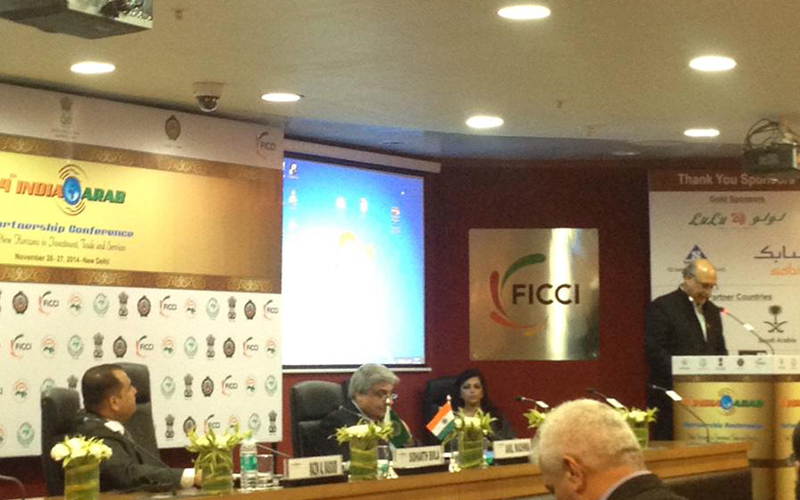
India and the Arab countries historically enjoy close relations. The Partnership Conference comes as part of a series of high level meetings planned for this year to elevate the level of engagement between the two sides. In August 2014, the first India- Arab Media Symposium was held in New Delhi. Early this month, India and the League of Arab States organized the first Senior Officials Meeting, which presented an opportunity to the two sides to discuss the whole gamut of bilateral, regional, and multilateral issues. On the cultural side, the India-Arab Cultural Festival is currently being held in Algiers from 20-27 November 2014. There is also an agreement to hold the India-Arab League Ministerial Summit in 2015.
His Highness Sayyid Kamil bin Fahd al Said, Assistant Secretary General for the Cabinet of Deputy Prime Minister for the Council of Ministers of the Sultanate of Oman, H.E. Ahmed Ben Helli, Deputy Secretary General of the League of Arab States, H.E. Yahya Al Jabri, Executive President of the Capital Markets Authority of Sultanate of Oman, Fellow Ministers from Arab League member States, Esteemed Officials of various Chambers of Commerce and Industry from India and the Arab World, Business delegates, We are delighted to be in Muscat, a city that breathes serenity and offers great promise under the calm and sagacious leadership of His Majesty Sultan Qaboos bin Said Al Said. We are grateful for the excellent arrangements for our 5th India-Arab Partnership Conference, topped by the warmth of hospitality; it is a wonderful blend of modern mind and traditional heart.
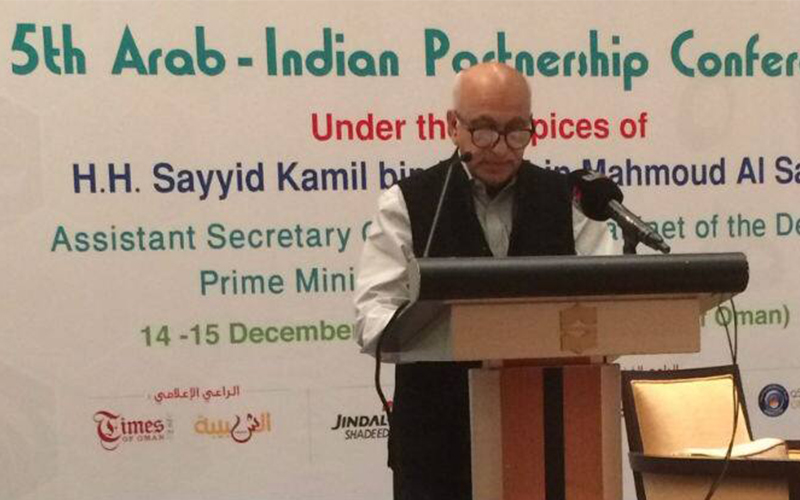
The Partnership Conference began in 2008. Earlier conclaves witnessed enthusiastic participation of policy makers, business leaders and analysts. But this conference, I believe, can be a real game changer, for our partnership has acquired critical mass.
India and the Arab world have always been bridged by enormous goodwill. Our merchants have improved the quality of life on both sides of the waters since before recorded history, but that was only a part of the equation. Our civilizations were in the vanguard of human progress: the Nile, Tigris, Indus and Ganges nurtured ideas, philosophy, learning and values that laid the foundations of world thought. Our scholars, monks, sufis, intellectuals, scientists, architects, musicians, poets, farmers, mathematicians and – never forget them – chefs, established and expanded the horizons of knowledge. Let us pay homage to them now as we seek to recover the momentum and advance that was our forte before our progress was interrupted by colonialism. Unlike the one-way traffic of foreign domination, our indigenous relationship flourished because it was built in peace – the peace of equals. Nothing beneficial walks on a one-way street. I am not surprised, therefore, that Indian terms for crop seasons – Kharif and Rabi – are derived from Arabic roots; or that the lotus is a sacred symbol of regeneration in India as well as Egypt.
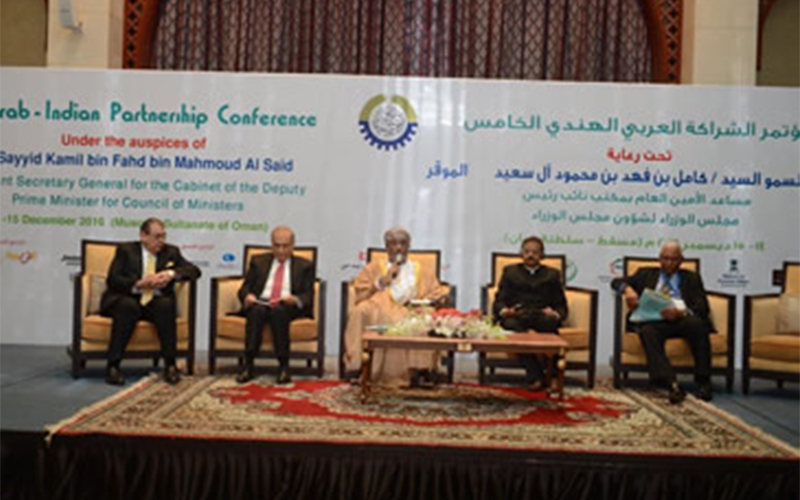
Governments are best when they act as enablers and pave the way for citizens to find one another. This has already happened. There are 700 flights a week between India and UAE alone! Our annual bilateral trade has crossed USD 184 billion - it is more than 25% of India’s global trade. India’s energy security pillar is the Gulf and West Asia. The Maghreb is our major source of phosphate and fertilizer.
India and Oman have a relationship that can be a model: we are maritime neighbours across the Indian Ocean. It is a friendship that defines a neighbour, not proximity or distance. The historical maritime trade and cultural exchanges, spanning over 5000 years, have evolved over the past 7 decades into a strategic partnership between India and Oman. Our relationship has been sustained by mutual trust and is based on shared values, common interests and respect for each other’s concerns and priorities. Apart from extensive defence and security co-operation and people-to-people exchanges, bilateral trade and investment are key pillars of the India-Oman bilateral partnership. Today, there are around 3000 joint ventures between Indian and Omani partners in Oman with a total investment of around USD 7.5 billion. These statistics tell their own story.
But, while these laurels would distinguish any record, they are nothing compared to what we, from India and the extensive Arab world, can achieve. I do not see the glass as half full; in fact it is not even quarter full. Normally, such a statement might be tinged with a trace of regret, but for me, the empty space represents the wealth of opportunity and the energy of positive excitement. Imagine what we can do, if only we put our capacities into harmony.
This is why I believe we are at critical mass. There is an energy explosion around the corner that is seeded in the greatest natural resource of creation, human aspiration working in conjunction with collective will.
Today, my fellow Ministers and distinguished colleagues, we are capable of taking command of the 21st century. If the 20th century was the century of invention, the 21st will be the century of reinvention. New worlds are being born even as we meet, through discoveries made at the cutting edge of exploration, in science and technology. The internet and its vast boundless spaces are reimagining every aspect of life. In 2030, we will not recognize how we live today. Or more accurately, today’s children and teenagers will wonder how we managed to get along with such limitations in connectivity and mobility. Or why we suffered medical conditions that still kill in such numbers; or why our personal libraries were so insufficient if they existed at all.
The future will be stupendous because this future is in the hands of the young. My country, I am pleased to say, is playing its part in nourishing this future. India is poised to become the world’s manufacturing hub; it is already a hub for R&D and innovation as well as technology start-ups. The Indian start-up industry has over 20,000 companies, creating over 80 billion dollars of value, employing nearly 3,25,000 people. Large numbers of young educated, aware, aspirational Indians are employed in the Indian IT industry, which itself is generating revenues of over USD 170 billion and exports of over USD 110 billion annually; Indian software start-ups and entrepreneurs are rapidly emerging and beginning to make their mark globally. Indians are at the helm of affairs at global technology companies like Google and Facebook, and are among the most regarded entrepreneurs and investors in Silicon Valley and elsewhere. Indians have helped create the driverless car already visible today; by 2018 an Indian company will be the first private sector company to achieve a soft landing on the moon. And of course you all know that our successful mission to Mars cost less, per kilometer, than a taxi ride.
India is preparing itself for transformation under the dynamic leadership of Prime Minister Narendra Modi through sweeping changes in regulatory and administrative reforms. The Goods and Services Act provides a single tax framework across the country for all goods and services by April 2017. FDI regime has been liberalized; even the defence sector has been opened to FDI. More sectors are now opened for 100% investment through the automatic route. The new bankruptcy law will be operational soon. Streamlining of clearances has been one of our top priorities. By 2017, the average time for pending IPR application will come down from 5-7 years to 18 months and Trade Mark registration to 1 month (down from 13 months). The time taken to obtain environmental clearances for projects has already been brought down from 600 days to 180 days. The aim is to reduce this to 100 days. Our government has created a single window – an "Invest India” authority - to facilitate and hand hold investors looking to invest in any part of the country. We want the world to "Make in India”. Because we have the talent at every level of human resource needed for the new economy. To offer only one example, that sovereign wealth funds of Gulf countries can be profitably invested in India’s burgeoning infrastructure sector, which offers healthy returns. India too is getting ready for Make in India.
But, the key lies in the reform of conventional behavior and thinking. We, in India, are moving our systems into the banking age to eliminate the corruption and crime that has become the unfortunate collateral of cash payments. Direct benefits are being transferred to the poor to the newly created bank accounts. We want to double the size of our domestic purchasing power within a few years by placing resources in the hands of those who have been denied them. Think, and consider what this will mean for those who invest in manufacturing in India.
There is one dark, vile, cloud however; a cloud that can pour acid rain on such a shining prospect. There can be no prosperity without peace and the existentialist challenge to peace in our times comes from a barbaric evil: Terrorism. We have already seen the havoc it has inflicted, the wars it has instigated, the massive instability it has triggered in regions that had begun to move towards social calm and economic growth. Terrorism generates not only conflict on battlefields; it sows fear in the midst of plural societies, building walls of dread among people who have lived together for ages. We can witness the political consequences of this phenomenon in nations that believed, till recently, that they had overcome such dangers through economic success and liberal co-existence. We must become partners against this life threatening menace, terrorism. As our Prime Minister has said and repeated: There is no good or bad terrorism. Such evil does not have shades. Hypocrisy and complacence in dealing with this evil is suicidal.
We need partnership in security, and there is substantial space for co-operation in both conventional instruments of security as well as new approaches as in cyber security. We welcome a dialogue that is backed by ability, need, confidence and confidentiality. In conclusion, I wish to express my gratitude to our hosts Government of Oman, the Arab League, the esteemed Chambers of Commerce of the Arab countries for the excellent arrangements made for this conference and gracious hospitality extended to me and the members of my delegation. I also wish to thank my fellow participant Ministers and the League of Arab States for joining me in taking our relations to a new high. The future is ours, if we know how to seize it.
Ambassador Dr. Ausaf Sayeed, Secretary (CPV&OIA), Ministry of External Affairs, Government of India, today informed of the resumption of discussions on the Free Trade Agreement (FTA) between India and the Gulf Cooperation Council (GCC) at the 6th India Arab Partnership Conference.
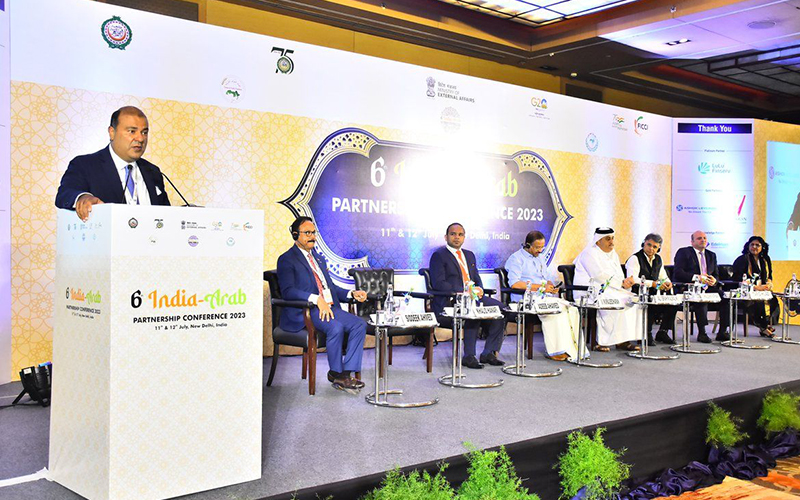
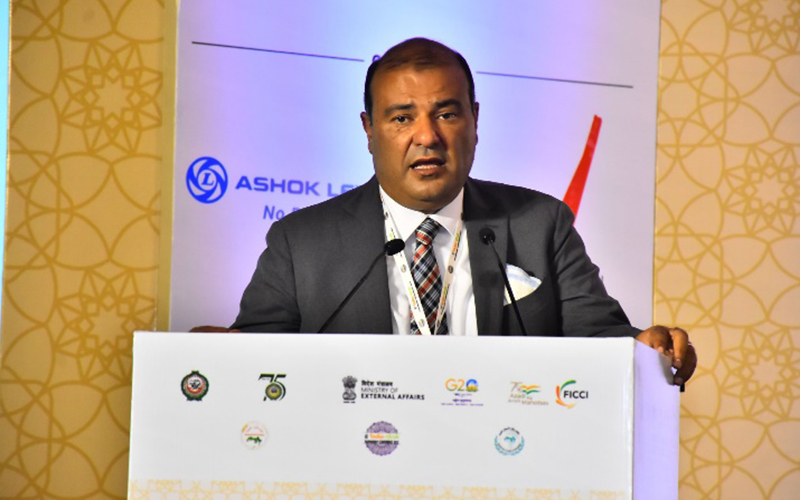
In addition, the secretary alluded to the discussions on exploring alternative forms of trading with GCC nations. “There are discussions with our bilateral partners, talks about Rupee trading, barter trading and many other things, especially under the circumstances where most countries are facing challenges of foreign currency.”
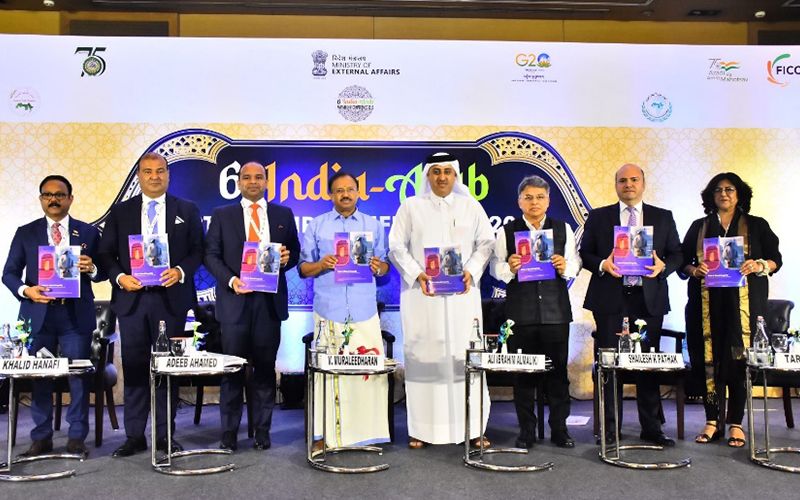
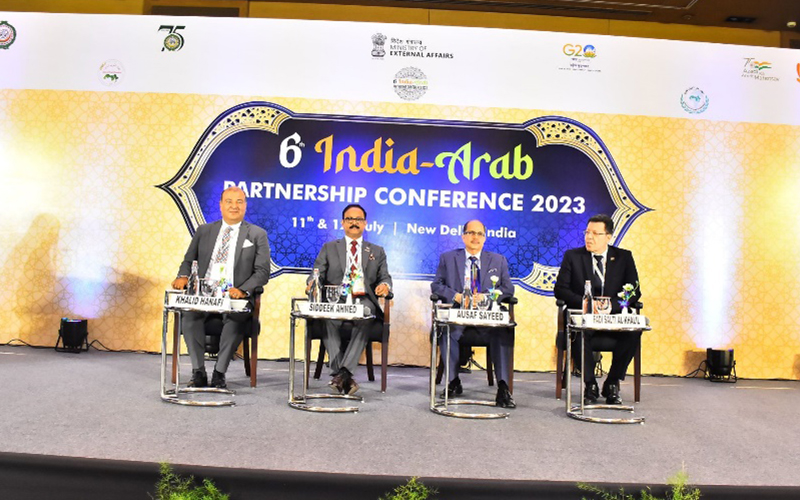
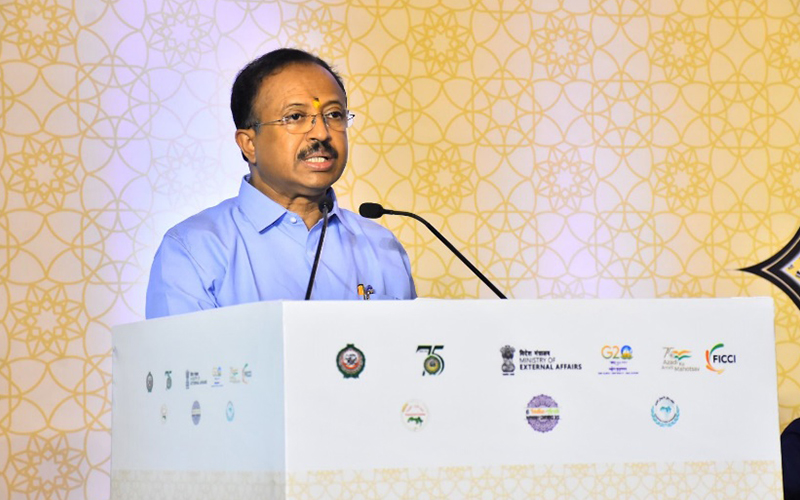
Dr Fadi Salti al-Khalil, Chairman of the Planning and International Cooperation Commission of the Syrian Arab Republic, underlined that the Indo-Arab partnership will enhance economic capabilities. He also called for establishing a new economic bloc to create a revolution based on the fourth industrial revolution for sustainable development and achieving growth and prosperity.

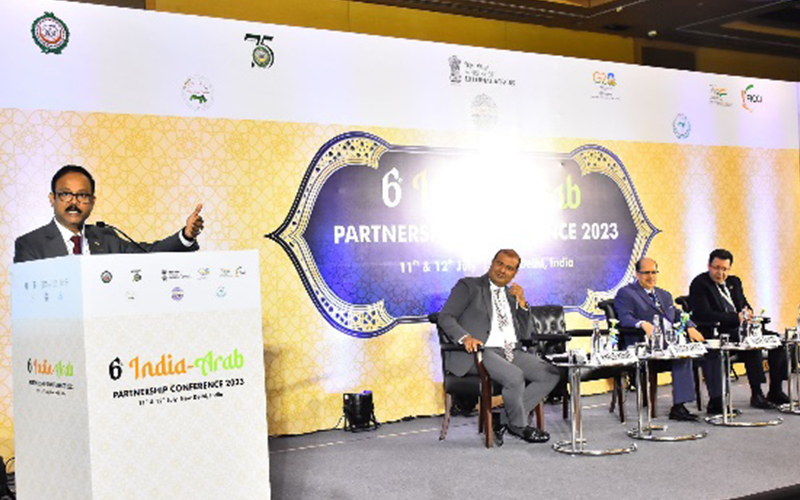
Dr Siddeek Ahmed, Co-Chair of FICCI Middle East Council and Chairman & Managing Director of Eram Group, extolled the event as an invaluable platform for fostering cooperation between India and Arab nations. With a shared history, cultural ties, common values, and mutual interests binding India and the Arab countries, Dr Ahmed advocated for a collaborative approach to overcoming shared challenges and optimising opportunities in a post-pandemic world, leveraging the strength and synergy innate to this partnership.
